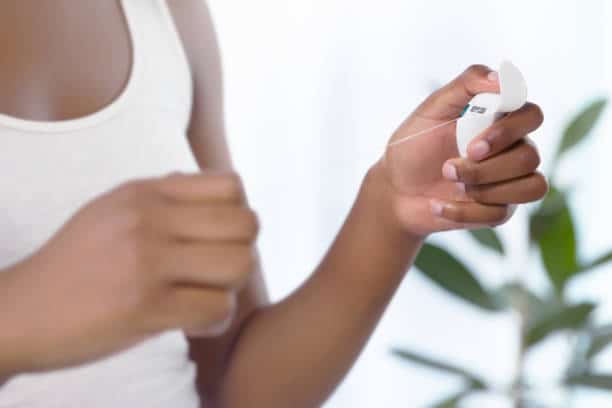
Needle-phobic people may one day have an alternative to yearly pokes. A recently published study found that dental floss can potentially be used to give vaccines, since the gums have absorption potential.
The study was conducted by flossing mice. That’s right. Scientists figured out how to floss the flu vaccine into mice’s gums, and the initial findings point to a strong immune response.
While most vaccines are given through the muscle, a few are already administered in other ways. The rotavirus vaccine is given orally, as well as the ones for typhoid and cholera. Also, the live flu vaccine is given through the nose.
How the gums could be a gateway
Scientists have been trying to somehow use the mouth to trigger immunity, but under the tongue or in the cheeks hasn’t been as effective as they hoped. These are also the same areas where you’d catch an infection more easily.
The study showed that the gums were more successful than other attempts, specifically the space between the teeth and the gums. The results showed strong immune activity in multiple organs, plus antibodies in the bloodstream.
For the test run, researchers stained a protein with a fluorescent color. After administration, they found that 75 percent of it went into the gums. Two months later, the antibodies remained present in the mice.
Study lead author Harvinder Singh Gill, an engineer at North Carolina State University, reads that the pockets of gum between the teeth are extremely absorbent. “That sort of struck a spark,” says Gill. “If it is highly permeable, could we not use it for vaccination?”
Not only did researchers test the live flu vaccine, but they also explored the effectiveness of three other classes of vaccines: proteins, inactivated viruses, and mRNA. All three saw an immunity response.
RELATED: 3 Minutes of Flossing Can Save Your Life, Here’s How…
When can humans benefit?
Clinical trials haven’t begun yet, so the effectiveness on humans isn’t yet known. When they begin, a few challenges will need to be addressed. For instance, how will babies and people who don’t have teeth be able to receive the vaccine? Also, will gum disease prevent some people from receiving an oral vaccine?
“We’re optimistic about that work and —depending on our findings—may then move toward clinical trials,” Gill says.









